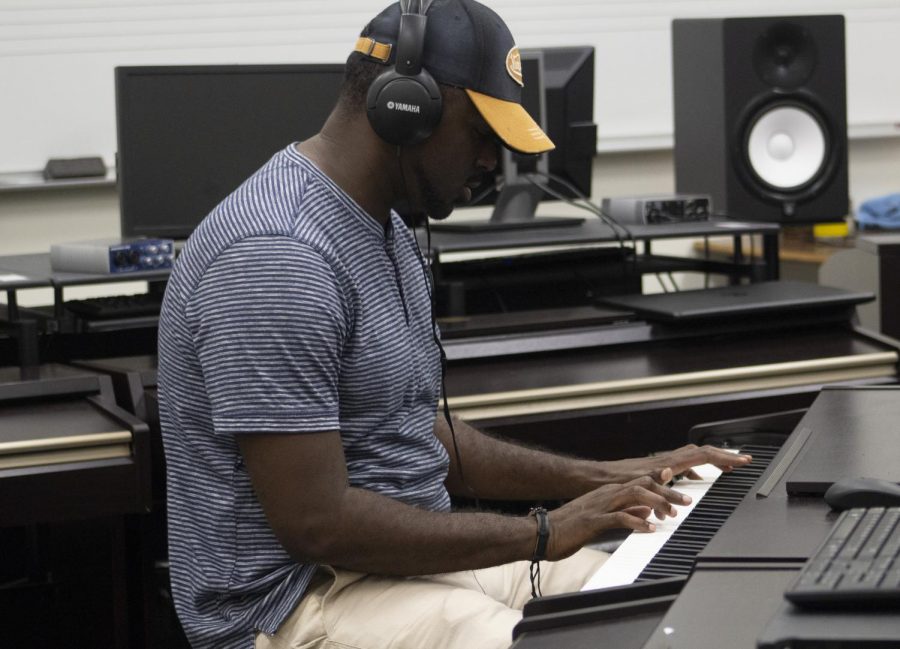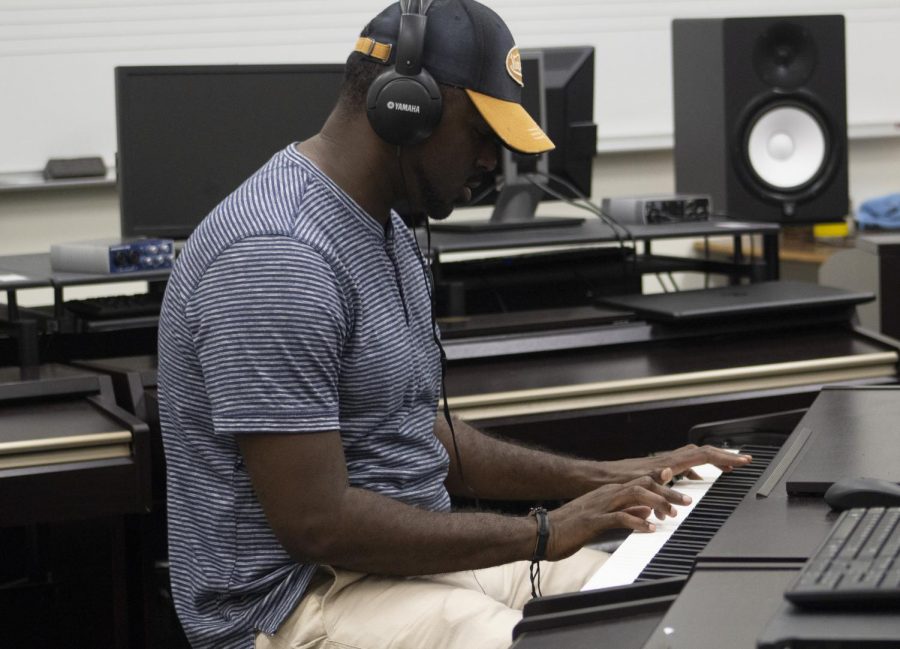Jump-starting his career
October 5, 2018
Many students wait until they have finished school and graduated before they even think about working in their chosen field. This is not the case with one audio production certificate student, who recorded, mixed, mastered and distributed three pop dance songs during summer break.
Nigel Tiller, 41, worked with two other musicians under the band name The-Late Bloomerz. He wrote, recorded, mixed and mastered “Your Love,” released May 31, “Crown” on July 4, and “Big Dream” on Aug. 28.
TuneCore.com distributes his song files to streaming services and digital stores like Spotify and Apple.
Besides audio production duties, Tiller also played the keyboard, programmed drums and synthesizers, arranged the music on the sequencer and added his voice as one of the vocalists.
Tiller returned to college last fall, enrolling in the certificate program.
“I’m older now,” Tiller said. “I’m more disciplined. I’m more focused. I just want to see what’s going to happen after this.”
Music Professor Jason Waddell said Tiller is one of only a few other students who have released music while completing the certificate program.
“Students like Tiller have been humble to take criticism and learn from it. And then to go above and beyond even the assigned level,” said Waddell, who oversees audio production classes.
Waddell identifies four stages to the audio production process: the production or creative stage, the recording stage, the mixing stage and the mastering and post-production stage. He also identifies that making connections is important, too.
“Part of learning those techniques is just producing more and more and more,” Waddell said. “And being willing to work with other people, which Nigel does. He’s had other students come to his house to work on projects and I encourage that.”
Jeff Milner, a music performance major, who is also pursuing an Audio Production Certificate, is one of the students who has collaborated with Tiller.
“Karran Robinson and I were collaborating on a project for songwriting, and we both didn’t have the necessary tools to record and mix our tracks,” Milner said. “Then Karran talked to Nigel who offered his services to us, and we went to his home studio (where Nigel) recorded guitar, bass and vocals, and added a drum track for us and mixed it, as well. He was a great help to us and he taught us a lot of techniques and other tips to help in the recording studio.”
Nia Tiller, 18, is a freshman at Lincoln Land, pursuing an Associates in Liberal Arts. She is also Tiller’s daughter.
Planning to pursue a degree in film, Nia Tiller shares her father’s musical DNA. She plays electric bass. She grew up, watching more and more bands because she enjoyed the music and decided to learn an instrument to play what she enjoyed.
Nigel Tiller’s love of music came from his father, who played in a band with his uncle and achieved minor success. According to Tiller, his father was a self-taught musician and “could play anything by ear just by hearing it once.”
Tiller remembers the advice his father gave him, “Never give up. No matter what goes on, don’t stop.”
This paternal advice has stuck with Tiller.
“He’s been a very big go-getter as far as he’s not afraid to try things,” Waddell said. “And he’s not afraid to fail because being afraid to fail is going to hold you back. You have to be willing to do something, take a risk, and if it doesn’t work out, then learn from it and go on.”
“This program at Lincoln Land,” Tiller said, “is a really good program because I’ve looked into other programs outside of here that costs, man, way more than what Lincoln Land is charging. I am very grateful for this program. I’ve been telling a lot of people about it. I’m hoping [it] can expand more. I’m thankful for this program because without this program I don’t know what I’d be doing right now to be honest with you. It gave me that drive back and it kind of motivated me in a whole different way. I feel way better about the music I am doing than I did before.”
Tiller plans to complete the audio production program in the spring. He said the online and hybrid courses that comprise the program were a bit of a challenge at first, but he has grown accustomed to it.
After finishing, he plans to go to Western Illinois University for completion of a Bachelor of Music-Music Production through a 2+2 degree completion agreement between Lincoln Land and Western.
Paul Watson can be reached at [email protected].

